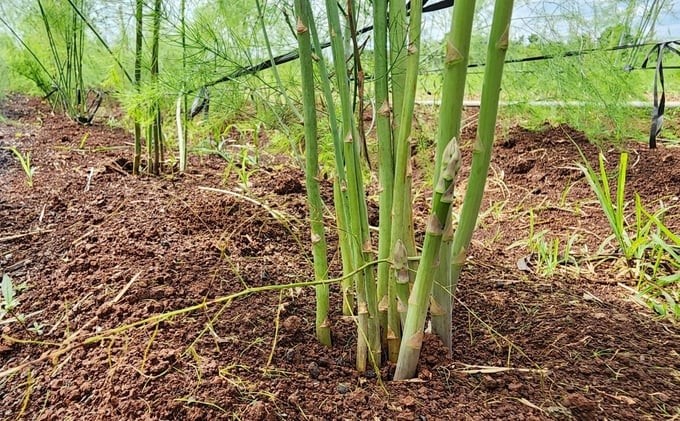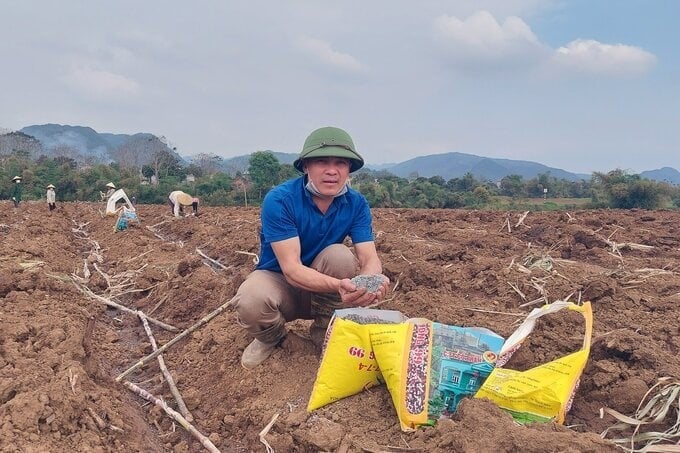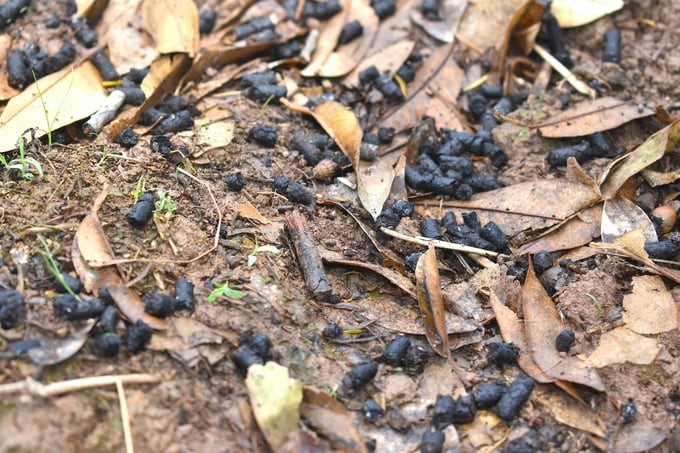December 7, 2025 | 16:17 GMT +7
December 7, 2025 | 16:17 GMT +7
Hotline: 0913.378.918
December 7, 2025 | 16:17 GMT +7
Hotline: 0913.378.918
On June 14, the Ministry of Agriculture and Rural Development organized a workshop on "Current status and orientation of soil health management towards sustainable crop production.".
We are scientists related to soil science, so we wish to make more comments so that we can jointly protect the health of Vietnam's cropland. We would like to comment as follows:
It is essential to deploy nationwide a system of "soil health hospitals" with modern soil analysis rooms and good soil doctors (soil agrochemical engineers). Only then will farmers have a place to check agricultural soil health and know what they need to pay attention to about the soil they are cultivating.

'Soil health hospitals' will help farmers analyze and know what they need to pay attention to about their productive soil. Photo: KS.
Currently, this is a deadlocked issue for Vietnamese farmers. Vietnam's cropland has been showing signs of "excessive limiting nutrients." This factor has an even greater impact on soil health than the factor of "deficient nutrients" in the soil.
There are now three problems frequently affecting soil health that need immediate solutions.
1) On sloping land in the Central Highlands, there are often severe droughts at the end of the dry season. Farmers do not have enough water for irrigation, so what needs to be done is to deploy many irrigation dams in the valleys to store water for irrigation until the end of the dry season while maintaining vegetation. Only then can we protect the soil microbial community (the ingredient that increases soil health).
2) In the Mekong Delta, the area of land contaminated with salinity and the impact of salt water at the end of the dry season increase highly. Saltwater intrusion is greater than 70 km, which has greatly affected soil health. Therefore, the Ministry of Agriculture and Rural Development needs to soon find a solution to dig reservoirs along the Tien and Hau Rivers (upstream) to store water to combat drought and salinity. Remove local flood prevention systems to receive alluvium and fisheries from the Mekong River.

Long-term dependence and abuse of chemical fertilizers cause soil to have less biodiversity and become more and more seriously degraded. Photo: Vo Dung.
3) Currently, we are not cultivating harmoniously between chemical (inorganic) and organic fertilizers, so we need to advise and have solutions to support businesses and farmers in producing organic fertilizers. The agricultural sector now produces 15 million tons of waste and by-products each year. Composting with high technology (improving quality) and producing biochar will greatly contribute to increasing soil health.
Agricultural production in our country mainly uses chemical fertilizers for a long time, causing soil to have less biodiversity and become more and more seriously degraded, and causing plants to develop poorly with many pests arising. The overuse of chemicals has made our country's agricultural production less sustainable, with low economic efficiency. Especially, the land is increasingly degraded and depleted of nutrients.
Currently, there is no other way to overcome this problem than to change practices and awareness in agricultural production, not to overuse chemicals, and to mainly cultivate in an organic direction (in production, chemical fertilizer is still used, but not overused). However, if there are many animal and plant residues in the soil without enough microorganisms with their rich and diverse activities, the soil will not be able to decompose plant and animal residues to create organic compounds that create soil fertility, provide food for the microbial community in the soil, and provide nutrients for plants to grow well.

Organic fertilizer is a favorable environment for soil microorganisms to develop and increase soil health. Photo: Trung Quan.
Many species of microorganisms are also the forces that protect plants from unfavorable conditions and pests. Therefore, when talking about organic, we must talk about how to protect the activity and biodiversity of microorganisms in the soil. It can be said that microorganisms play a very important role in protecting soil fertility and managing crop pests. Healthy soil - Healthy plants - Healthy environment - Healthy people.
Translated by Thu Huyen

(VAN) After three years, Project FST/2020/123 collected approximately 3,000 insect specimens, classified them into about 50 morphological groups, and identified around 40 species, including several new species.
/2025/12/01/0509-2-175427_206.jpg)
(VAN) Emission-reducing coffee areas in Lam Dong have entered the new crop with stable yields, improved quality, and a remarkably enhanced cultivation environment.

(VAN) The Institute of Agricultural Sciences for Southern Vietnam (IAS) marked its 100th anniversary in Ho Chi Minh City, celebrating a century of growth as a leading institute contributing significantly to Viet Nam’s agricultural development.

(VAN) An increasing number of livestock farms are using biogas generators to create a source of renewable electricity, helping to save costs and mitigate environmental pollution.

(VAN) Small changes in rice cultivation, from irrigation methods and straw collection to input management, are paving a new way for Vietnam's agriculture in the journey toward emission reduction.

(VAN) With the project of converting biogas into renewable electricity, Australia is both helping pig farms reduce their energy costs by up to 25% and contributing to environmental protection.
![Hue aims for Net Zero: [1] Initial steps from green transportation](https://t.ex-cdn.com/nongnghiepmoitruong.vn/608w/files/huytd/2025/11/28/0853-anh-6-giao-thong-xanh-hue-094717_940-153724.jpg)
(VAN) For sustainable development, Hue City is implementing many solutions to promote green transportation, which is an important initial step on the journey to building a Net Zero Hue.